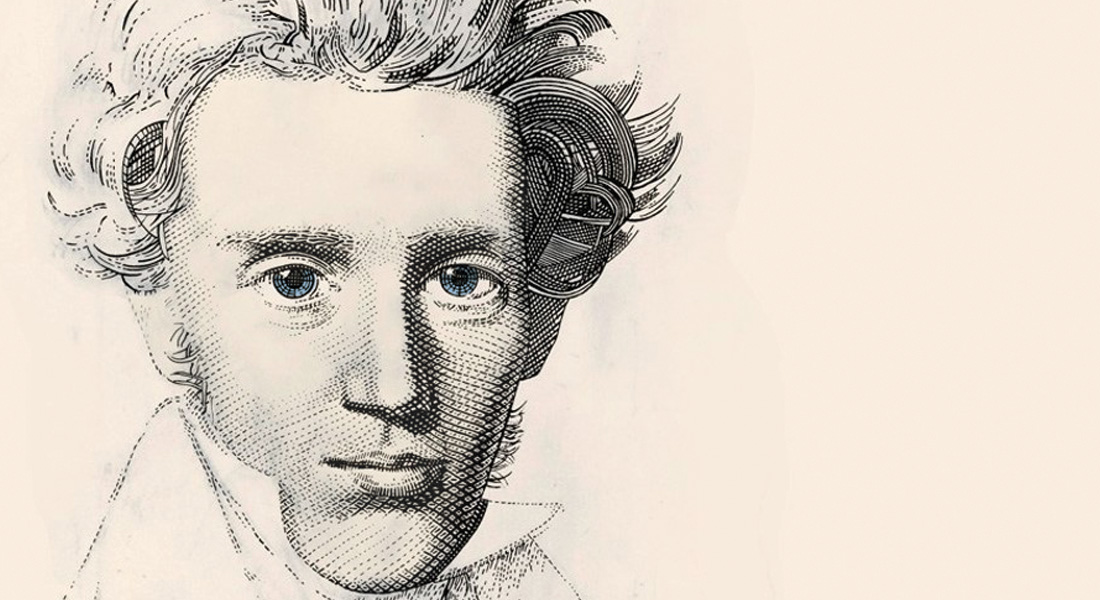SKC Annual Conference 2025

“Kierkegaard, “the Religious,” and Religions”
August 13 – 15
This conference is supported by the Carlsberg Foundation
Kierkegaard Auditorium (Room 9A-0-01),
Faculty of Theology, University of Copenhagen,
Karen Blixens Plads 16, DK-2300
Organized by The Søren Kierkegaard Research Centre
Registration open: https://eventsignup.ku.dk/skcannualconference2025kierkegaardthereligiousandreligions
Programme
Wednesday, August 13
13:00-13:15 Joakim Garff: Words of Welcome
Afternoon Session (Chairperson: George Pattison)
13:15-13:45 Claudia Welz: "Facing the Absolute Absolving Itself: Religious Life in Kierkegaard, Levinas, and Derrida".
13:45-14:15 Discussion
14:15-14:30 Break
14:30-15:00 Bernhard Obsieger: ”Kierkegaard and the Irrationality of Religion”
15:00-15:30 Discussion
15:30-16:00 Leonardo Rodríguez Duplá: ”Kierkegaard's Religiousness: Beyond Hidden Inwardness”
16:00-16:30 Discussion
16:30-18:00 Reception at the Marketplace
Thursday, August 14
Morning Session (Chairperson: Ettore Rocca)
10:00-10:30 Raquel Carpintero: ”The Void of the Religious: A Kenotic Foundation for the Self”
10:30-11:00 Discussion
11:00-11:15 Break
11:15-11:45 Roe Fremstedal: ”The Ethical and the Religious”
11:45-12:15 Discussion
12:15-13:15 Lunch Break
Afternoon Session (Chairperson: Lilian Munk Rösing)
13:15-13:45 Sevcan Öztürk: ”Indirect Paths to Truth: The Kierkegaardian Hermeneutic in an Islamic Context”
13:45-14:15 Discussion
14:15-14:30 Break
14:30-15:00 Marie Saugmann: ”Kierkegaard in the Hands of Abdurrahman Badawi”
15:00-15:30 Discussion
Friday, August 15
Morning Session (Chairperson: Ingolf Dalferth)
10:00-10:30 Jizhang Yi: “The Way to Truth: Kierkegaard’s Leap of Faith and Chan Buddhist Sudden Enlightenment”
10:30-11:00 Discussion
11:00-11:15 Break
11:15-11:45 Wang Qi: ”The Openness of “the Religious” and Truth in Movement”
11:45-12:15 Discussion
12:15-13:15 Lunch Break
Afternoon Session (Chairperson: Vincent Delecroix)
13:15-13:45 Mads Peter Karlsen: ”Kierkegaard as Philosopher of Religion?”
13:45-14:15 Discussion
14:15-14:30 Joakim Garff: Concluding Words
The term ‘the religious’ occupies an essential place in Kierkegaard's writings and journals. In certain contexts, the term has an affinity with the ethical, while in other cases it is associated with what is specifically Christian. Correspondingly, Kierkegaard distinguishes between ‘religiousness A’ (the Socratic, human religiousness) and ‘religiousness B’ (the paradoxically Christian religiousness). In addition, ‘the religious’ can denote the hermeneutic lens through which Kierkegaard wants his writings to be read in distinct difference from an ‘aesthetic’ reading. But what does it mean to read Kierkegaard religiously? And is that necessarily the best reading? On closer inspection, the term ‘the religious’ turns out to encompass a very broad range of meanings, which include such more or less synonymous terms as ‘the eternal’, ‘the eternal power’ and ‘the majestic’ as well as a long series of other transcendent signifiers and metaphors which are in need of careful scrutiny.
The intent of conference is to open up and develop this range of meanings, but the conference also aims at more than that, and is, in addition, directed at exploring Kierkegaard's relationship with religions in general and to shed light on his understanding of Judaism, Islam and Buddhism, among others. What did Kierkegaard in fact know about these religions? Did he permit himself to be inspired or provoked by them? And how do Jewish, Buddhist, and Islamic thinkers view Kierkegaard’s ideas about God, the practice of religion/devotion, the nature of the self, and scripture? What is his voice? Where is the emphasis placed in readings of his work? In a postcolonial world order, is a secular reading of Kierkegaard the way to an increased understanding of the matters that most concerned him? In other words, can he enter into a dialogue with other religions without letting go of what is specifically Kierkegaardian about being Kierkegaard? Thus, the conference poses the question of what an investigation of other religions shows about “the religious” in Kierkegaard.
Joakim Garff
Iben Damgaard
René Rosfort
Elizabeth X. Li
Bjarke Mørkøre Stigel Hansen
